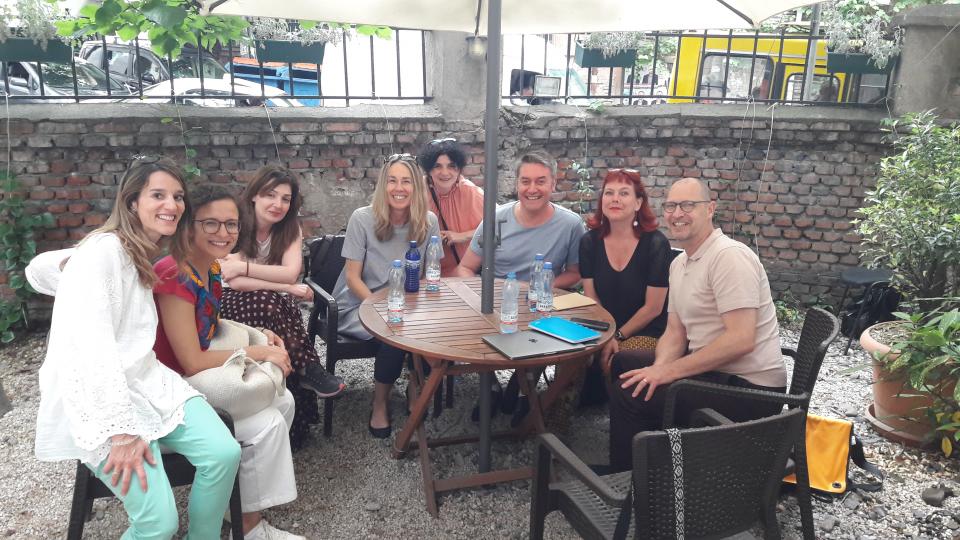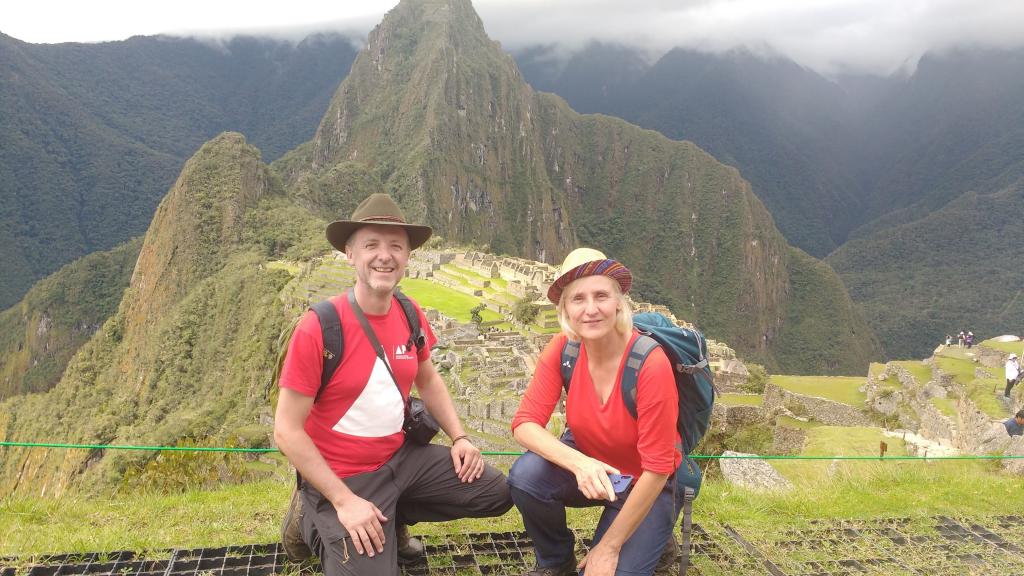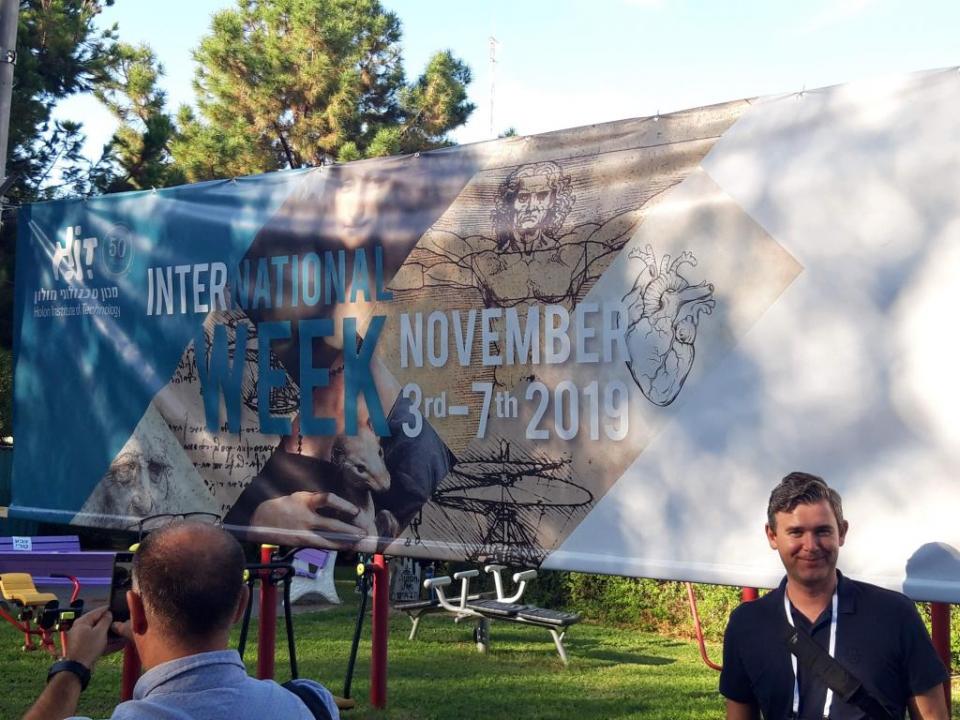Israël
The main goal of this joint application is to strengthen the ongoing collaboration between the Holon Institute of Technology (HIT) and AP University of Applied Sciences and Arts Antwerp (AP); from the academic and the research and development perspectives, to create opportunities for staff development, joint academic programs and R&D initiatives. HIT is one of the leading technological academic institutes in Israel, known for its innovative teaching technologies and extensive community involvement. The collaboration between our two institutions will promote the creation of a unique, hybrid methodology shared by both, (in Israel and Europe) teaching and preparing students for real life technological challenges as well as for joint R&D projects. This hybrid methodology will support the internationalization strategy of both institutions. This project thus seeks to create a framework enabling our mutual ambitions. AP is aware of the importance of internationalization for the quality of its education and for the personal growth of its students. This international focus is one of the key points of AP’s “Gateway to the world”.
Students are expected to get the chance to work with different equipment, do research at the host institution in a multidisciplinary team with a different focus., They will discover a new and different educational system and achieve intercultural communication competences. They will take specialized courses which are not available at their home institution, get the chance to work in practical real-life projects and develop and put into use actual prototypes and experiences. Students have the opportunity to co-work on papers and share the knowledge on online repositories for future work.
Georgia

The cooperation between AP, GIPA and UG is based upon different international projects and network participation in EJTA. - EUROPE ON AIR The international cooperation originates from a collaboration in an Intensive Programme within LLP dealing with radio journalism. Within the thematic area ‘European policy on innovation’ we aim to
- develop new competences in the field of innovative media platforms and formats,
- foster multicultural awareness on differences in approach and
- discover innovative ICT-possibilities, scenarios and forms.
During the radio project (that was kept alive, also without EU funding) students and staff of 6 different European partner institutions of AP prepare, produce and analyse new radio formats, using interactive and social media platforms. Staff and students from both institutes could gain intercultural diversity to add to the radioproject. GIPA organised the radioproject’s 7th edition in their university in June 2019. In this project’s programme there is cooperation with media and socio-cultural organisations of the organising university and coaches and jury members from the non-academic field are invited, thus enlarging the project’s national and regional impact. AP collaborates with regional radio and television channels (Radio 2 and ATV). GIPA has close connections with Reuters Caucasus Bureau, Coda Story and the Georgian Mediachecker. Moreover, they involve NGOs such as Baltic to Black Sea Alliance and the Media Development Foundation.
In general, this mobility project for all three HEIs’ Journalism Department can lead to a broader and more intensified collaboration and can serve as an example for the other departments which the institutes share and which can relatively easily copy a similar way of working and cooperating. The impact on the students and staff of GIPA and UG will be the immediate learning outcomes they acquire, and for students and staff of AP it is certainly also the intercultural awareness and diversity cooperation is of added value. To measure this, we make sure that in the international projects specific emphasis is put on communication, journalism and media differences between the ‘free’ West and the inheritance of the ‘old’ East. The journalistic and research products resulting from the projects should show this newly gained awareness. For the different projects we try to use different indicators to assess the impact on the participating students, based on tangible results.
Peru

Within this cooperation we focus on human rights and sustainable development goals (SDG's),with special attention to the right to quality education for all and lifelong learning. We want to implement digital tools for interdisciplinary, intercultural collaboration and knowledge sharing.
AP University of Applied Sciences (AP) departments “Health and welfare” and “Education and training” desire to collaborate further on with the Association Pukllasunchis in Cusco. Pukllasunchis is a non-profit institution dedicated to education, with transformative proposals within the Peruvian educational system and in non-school spaces, with an intercultural, inclusive and environmental approach. They promote intercultural education in the city, from an educational center that serves the three levels of school education: initial, primary and secondary. This center also develops projects as: an environmental promotion center and radio for Andean girls and boys. Last but not least there is the Pukllasunchis Higher Pedagogical Institute.
Ukraine
Our main goal is to strengthen the ongoing collaboration for academic, research and development collaborations between AP Hogeschool Antwerpen and National University “Zaporizhzhia Polytechnic” to create opportunities for staff development, joint academic programs and R&D initiatives. National University “Zaporizhzhia Polytechnic” is the oldest and one of the leading polytechnical institutes in Ukraine, known for its innovative teaching technologies and focused on industry cooperation.
The cooperation between the two institutes will promote the practice oriented and project oriented teaching approaches, with extensive involvement of the industry, SME and governmental and non-governmental organizations in teaching and preparing students for real life technological challenges as well as for joint R&D projects. This will support the internationalization strategy of both institutes. This project seeks to assist in creating a framework to enable our mutual ambitions.
The expected impact for students (in the ongoing KA107 project) is to get the possibility to work with the equipment and on research at the receiving institution in a multidisciplinary team, with other focus than at the sending institution. They will get knowledge in different educational systems and achieve intercultural communication competences. They will learn specialized courses which are not available at their home institution, get the chance to work in practical real-life projects and develop and put into use actual prototypes and experiences. Students have the opportunity to co-work on papers and share the knowledge on online repositories for future work.






